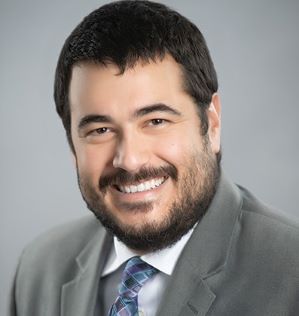
In the recent case In the Matter of the Estate of McLoughlin, 104 Mass. App. Ct. 752 (2024), the Appeals Court considered the question whether a beneficiary’s participation in support of litigation brought by a disinherited family member triggered the no-contest or in terrorem clause of a will. In Massachusetts, in terrorem clauses are valid and enforceable, both under long-standing caselaw and under Section 2-517 of General Laws Chapter 190B, the Massachusetts Uniform Probate Code. Because such clauses involve a forfeiture, though, they are narrowly construed. On the facts before it in McLoughlin, the Appeals Court found that the beneficiary’s submission of an affidavit supporting his brother’s argument that a will was not valid did not trigger the no-contest clause in that will.
On Sept. 25, 2020, the decedent, William F. McLoughlin Sr., executed a last will and testament leaving assets to five of his six children and disinheriting the sixth, William Jr. The will contained a no-contest clause providing as follows:
If any beneficiary hereunder shall contest the probate or validity of this will or of any of the beneficiary designations in place in connection with any of my qualified plans, IRAs, life insurance policies or any other asset of mine passing outside of this, my last will, or any provisions thereof, or shall institute or join in (except as a party defendant) any proceeding to contest the validity of this will or any provisions I have made during my lifetime for the distribution of my assets, whether probate or non-probate in nature, or to prevent any provision thereof from being carried out in accordance with its terms, then all benefits provided for such beneficiary are revoked, and such revoked benefits shall pass to the residuary beneficiaries of this will (other than such beneficiary).
William Sr. died on Oct. 30, 2020, 35 days after executing the will. His son Thomas filed an appropriate petition, and a judge of the Probate and Family Court admitted the will to probate and appointed Thomas as personal representative. William Jr. then filed a motion seeking leave to file a late objection to the will, claiming he did not understand that it was the 2020 will that had been submitted to the court, and that that will was not valid because William Sr. lacked capacity when it was signed. Sean, a sibling of Thomas and William Jr., was not involved in the filing of William Jr.’s motion.
Thomas opposed William Jr.’s motion and submitted an affidavit describing conversations that Thomas had with William Jr. after William Sr.’s death and at which Sean was present. Sean disagreed with Thomas’ assertions and submitted an affidavit drafted by William Jr.’s lawyer to be used in support of the motion. In the affidavit, Sean swore that the decedent began suffering from Alzheimer’s and dementia in 2007, that his cognitive abilities had undergone a substantial decline by 2020, and that Thomas and two of his other siblings had been unduly influencing William Sr. at the time that the will was signed.
William Jr.’s motion for leave to file a late challenge to the will was denied. Thomas then argued that Sean had triggered the
in terrorem clause by signing the affidavit and that Sean was thus disinherited under the terms of the will. Other than William Jr., the other siblings all supported Sean’s disinheritance. The presiding judge ruled that Sean violated the no-contest clause and declared that all benefits to Sean under the will were revoked.
Overruling the lower court, the Appeals Court found that Sean had not contested the validity of the will because he had not personally filed an appearance and affidavit of objections in response to Thomas’ petition to probate the will. Further, he had not joined in William Jr.’s challenge to the will’s validity because he did not join in William Jr.’s motion seeking leave to file a late objection. As a matter of law, Sean’s submission of an affidavit as a fact witness did not constitute contesting the will. The Appeals Court explained that on each prior occasion where it has found a violation of a no-contest clause, the disinherited contestant was a party to the action challenging the will or trust at issue.
The court considered immaterial the fact that Sean submitted an affidavit voluntarily rather than insisting on testifying only in response to a valid subpoena. On public policy grounds, after initiation of a challenge to a will or trust, witnesses should be able to testify and provide relevant documents. The Appeals Court also cited cases from other jurisdictions arriving at the same result in support of its reasoning.
Under
McLoughlin, it is clear that acting as a witness in a proceeding contesting a will, without more, does not mean that the witness has himself contested that will.
Mark J. Esposito, a resident of Northampton, has a wide-ranging, litigation-focused practice. He represents clients before state and federal courts and administrative agencies in the areas of general, commercial and probate litigation; labor and employment; and administrative law. He has counseled various public-sector labor unions and employees in collective bargaining, arbitration and litigation. A summa cum laude graduate of Boston University School of Law, Esposito was a member and note editor of the Boston University Law Review. Prior to law school, he graduated magna cum laude from Williams College, where he was inducted into the Phi Beta Kappa society.